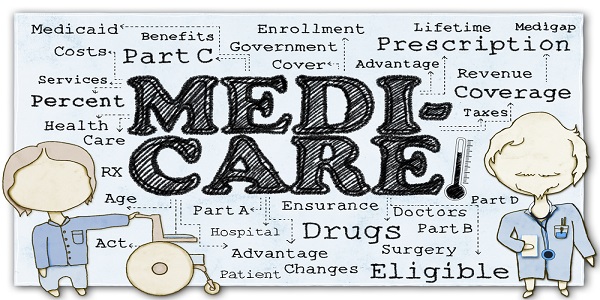Medicare and COBRA as Creditable Coverage - HR-5104
(Posted on 04/23/18)
 Medicare eligible members are continuing to work longer and they are electing to stay on their employer group health plans once they turn 65 rather than enrolling in Medicare coverage. If the Medicare beneficiary remains on the group health plan past the age of 65 with no gap in coverage and decides to enroll in Medicare at a later date, there would be no financial penalty to him/her, as long as the group is Medicare secondary and the coverage is creditable. If the group is Medicare primary, the Medicare beneficiary needs to get Part B immediately, even if staying on the group plan. However, most people do not know about the COBRA rule and how it affects them if they are Medicare eligible. If an individual is a COBRA beneficiary (because of reduced hours, retirement, etc.), COBRA is not normally considered to be creditable coverage for Medicare.
Medicare eligible members are continuing to work longer and they are electing to stay on their employer group health plans once they turn 65 rather than enrolling in Medicare coverage. If the Medicare beneficiary remains on the group health plan past the age of 65 with no gap in coverage and decides to enroll in Medicare at a later date, there would be no financial penalty to him/her, as long as the group is Medicare secondary and the coverage is creditable. If the group is Medicare primary, the Medicare beneficiary needs to get Part B immediately, even if staying on the group plan. However, most people do not know about the COBRA rule and how it affects them if they are Medicare eligible. If an individual is a COBRA beneficiary (because of reduced hours, retirement, etc.), COBRA is not normally considered to be creditable coverage for Medicare. What does this mean? Unlike an employer sponsored plan, COBRA is not considered creditable coverage for major medical benefits, so people who are enrolled in COBRA and do not enroll in Medicare Part B within 8 months of turning 65 face substantial financial penalties for the entirety of their Medicare enrollment.
When the employer plan includes prescription drug coverage, there are rules surrounding Part D and COBRA coverage as well. The COBRA would need to be at least as generous as the Medicare Part D offering in order for the prescription coverage to be considered creditable and for the eligible beneficiary to avoid a Part D late enrollee lifetime penalty. The enrollee would still incur a penalty on the medical side. Also, remember that while an enrollee has 8 months to sign up for Medicare, he/she only has 63 days to sign up for Part D.
So why do we need this law to pass?
Penalties for late enrollment will continue for the duration of the beneficiary's lifetime and many beneficiaries are unaware of these penalties when electing COBRA coverage for themselves or their spouses. Also, people are remaining in the workforce longer and are continuing to be covered by either employer sponsored coverage or COBRA. Lastly, there are a number of reasons why an individual would choose to remain on COBRA coverage rather than enrolling in Medicare including plan design, network, financial considerations and other reasons. It may be better for them to remain in their existing private coverage than to move to Medicare.
For more information, please contact [email protected] or Matt Pang at [email protected]

